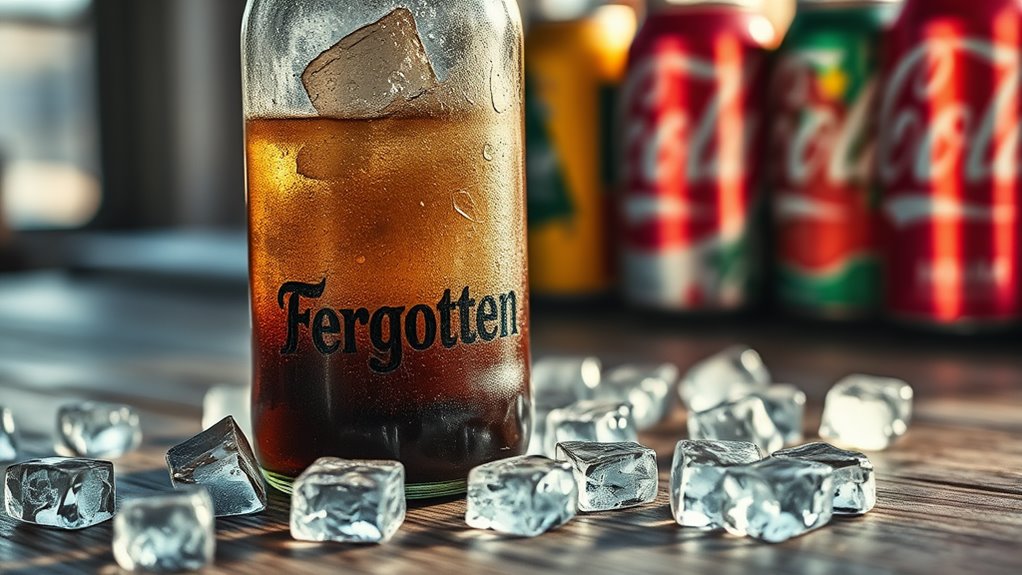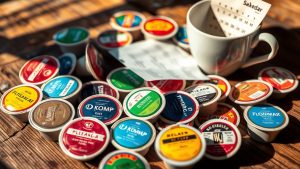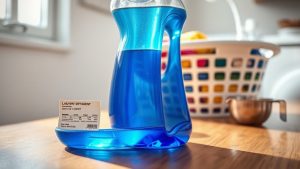
You can drink expired soda, as it's generally safe for consumption. Expiration dates primarily indicate ideal flavor and quality, not safety. Regular sodas can maintain quality for about nine months post-expiration, while diet sodas last around three months. However, inspect the container for dents, rust, or leaks; these signs indicate spoilage. Keep in mind that the taste and fizz may diminish over time. There's more to reflect on regarding storage and spoilage that can enhance your experience.
Have you ever wondered if it's safe to drink that soda sitting in the back of your pantry past its expiration date? You're not alone in questioning the safety of consuming expired beverages. The good news is that, generally speaking, expired soda is safe for consumption. The USDA categorizes carbonated drinks like soda as non-perishable, which means they don't pose immediate health risks even after the expiration date has passed. It's important to remember that those dates usually indicate the period for ideal flavor and quality rather than safety.
Expired soda is usually safe to drink, as the dates mainly indicate optimal flavor, not safety.
When you check your soda, you might find that regular soda can maintain its quality for about nine months after the expiration date, while diet soda tends to have a shorter shelf life of around three months. This variance is due to the different ingredients used in diet sodas, which can affect their stability. Even after these timeframes, soda typically remains safe; however, you might notice a decline in carbonation and flavor, which can impact your overall drinking experience. Unopened soda can often be stored for years without going bad.
Storage conditions play a vital role in how long your soda will last. Keeping soda at stable temperatures in a consistent environment, such as a pantry or cellar, helps preserve its quality. High light exposure, especially for clear bottles, can speed up degradation. If you've stored soda properly—away from extreme temperatures and direct sunlight—you'll likely find that it retains its quality longer.
Additionally, sealed containers prevent contamination and help maintain carbonation. Be cautious of drastic temperature changes, as these can lead to quicker loss of fizziness.
While expired soda is generally safe, you should always check for signs of spoilage before consuming it. Look for visible dents, rust, or bulging cans that may indicate potential contamination. Leakage is a clear warning sign that the soda could be compromised.
Though rare, unusual odors or color changes also suggest spoilage. Regularly inspecting your drinks for these signs is essential to guarantee both safety and quality.
If you choose to consume expired soda, keep in mind that while it's safe, you may find the taste and fizz aren't as satisfying as when it was fresh. For the best flavor experience, consider drinking soda within the recommended shelf life post-expiration. Refrigeration can help preserve opened soda's carbonation slightly longer, so you might want to store it in the fridge after opening.
Lastly, it's worth noting that there's no substantial research supporting the safety of drinking very old soda, such as something that's been stored for decades. Vintage or collectible sodas are generally not recommended for consumption.
Understanding that the expiration date mainly refers to peak quality rather than safety allows you to make informed choices regarding your beverages. By being aware of these factors, you can confidently decide whether to enjoy that soda you've been saving.
Conclusion
So, can you drink expired soda? Sure, if you're in the mood for a fizzy game of Russian roulette! While the sugar and carbonation might still be intact, you're playing with potential bacteria and off-flavors that could make your stomach question your life choices. It's like a chemistry experiment gone wrong—except you're the lab rat. If you value your taste buds (and your gut), maybe just stick to fresh soda and leave the expired stuff for the brave souls.



